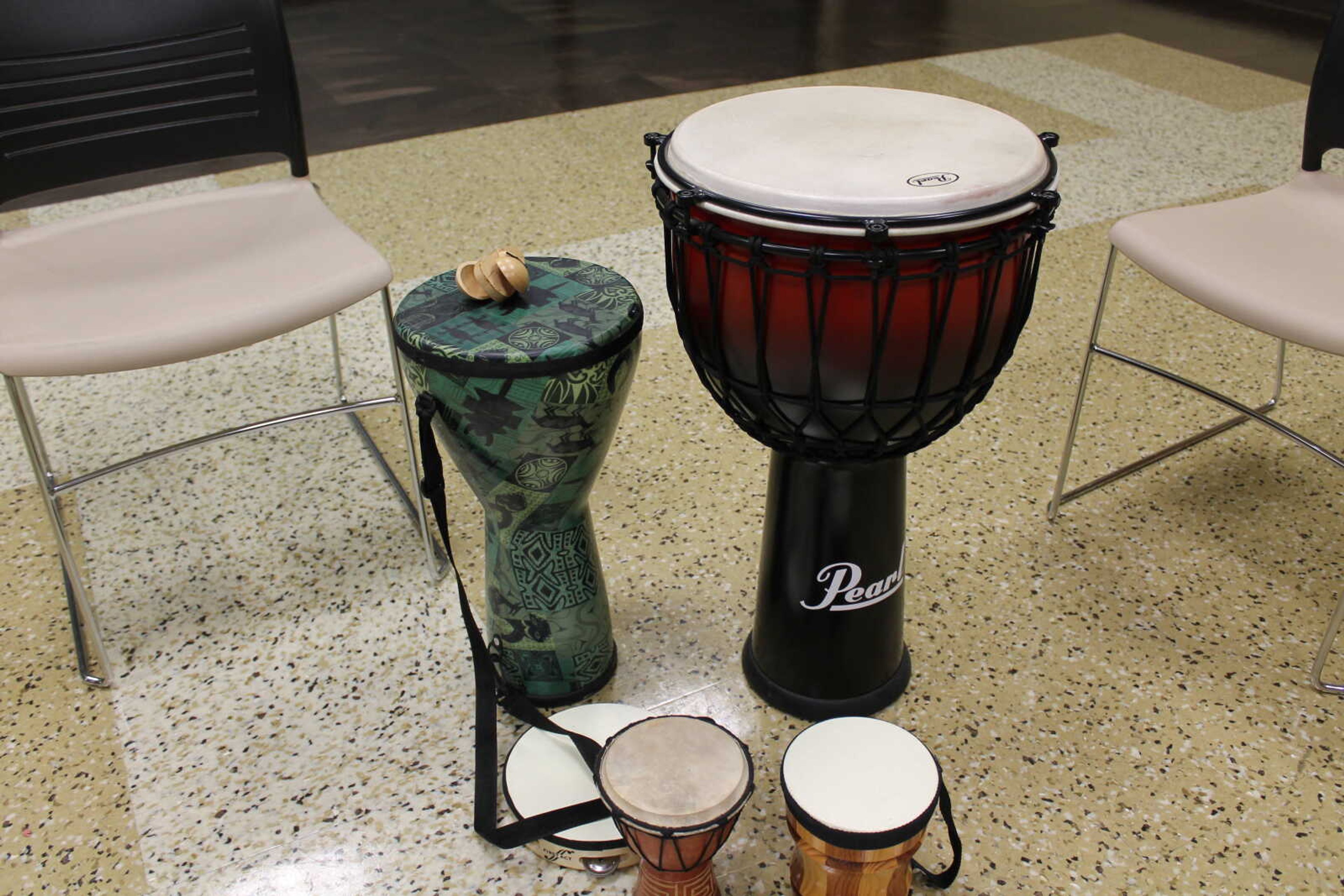Stress is an integral part of college life, especially around this time in the semester. Stress can motivate, distract from or even paralyze a student’s progress. When does typical college stress become something more, and what can be done about it?
“We all experience a whole lot of stress and breakdowns and it’s not good,” Southeast senior Carissa Hobbs said. “Stress, in general, is pretty high at SEMO. I see it being a big issue so I think taking action to help get rid of it is definitely a good thing.”
For the past few years, Southeast’s Campus Violence Prevention Program has held Expressive Art Group, a closed session group designed to reduce trauma responses for students who have experienced interpersonal or sexual violence.
At the beginning of this semester, Expressive Art Group began holding open sessions weekly to address the stress on campus. The open sessions are geared toward stress reduction through meditation and group activities as well as expressive techniques such as drum circles and art.
Offering a space for students to share their feelings and explore those issues together, Expressive Art Group participants say it is an effective opportunity to reduce stress.
“I feel that these meetings relieve stress really well,” Hobbs said. “I usually come in pretty stressed out and then we do the mindfulness part and the activities and the art, and I come out feeling relaxed and it’s easier to get things done.”
Professor of psychology Shawn Guiling said when someone is experiencing a high level of stress it becomes difficult to focus on anything, even what is causing the stress.
Guiling said taking time to step back and engage in an activity that reduces stress and lightens someone’s mood makes it easier to return to those stressful activities.
“A lot of people will let their hobbies and their free time go first, when really that was what was going to help buffer against their stress,” Guiling said.
When dealing with research projects, essays and deadlines, it can be difficult to know when typical college stress is becoming a more serious issue.
“A little bit of stress is good for everyone — it keeps you on your toes, it keeps pushing you forward.” Guiling said. “If there’s a little bit of stress about what you need to do but your still able to focus on it, that’s different than ‘I’m thinking about the stress that I can’t stop focusing on and I’m thinking about thinking about it.’”
College life — and life in general — is a juggling act. While psychologists argue most human brains aren’t actually wired for multitasking, people continue to over schedule.
“In our society, everybody’s doing everything,” Guiling said. “They all have many more hours than maybe they should have at jobs, they’ve got their classes, then they have activities on campus and activities off campus and they want to do it all.”
It’s not just students who fall into this trap. People in all positions and stages of life can overestimate their ability to cram in activities and underestimate their time restraints.
“Everything I said is true for teachers, too. They need to watch how many things they are committing to, and leave time for thinking through their lectures and being available for students,” Guiling said.
Stress is something everyone experiences. It can manifest itself in a number of ways such as putting off one task to focus on the next, losing sleep, oversleeping, overthinking or an inability to focus, Guiling said.
Drawing the line between stress someone can handle alone and stress someone should seek help for can be difficult. Guiling said as someone waits to reach out more stressors pile up, especially in the college setting.
“The more students find that they are thinking more about what they aren’t doing, or should be doing, or can’t do, they might need to start thinking about if someone should be contacted like an RA or going to the counseling center or just talking to their teacher about what their next step should be,” Guiling said.
Expressive Arts Group is held every Wednesday afternoon at 2 p.m. in Ballroom B in the University Center.
Counseling and Disability Services can be contacted at (573) 986-6191 or by visiting the office in rooms 201 and 202 in Crisp Hall.





